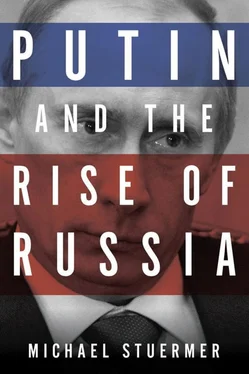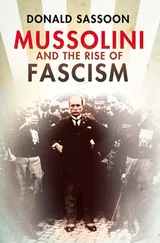For the time being the Kremlin, buoyed by high prices for energy and other strategic resources, is not afraid to preside over a country without friends. By and large, however, those who walk the Kremlin’s corridors of power are nothing if not realists. They will be careful not to become the victims of their own rhetoric when it comes to existential issues. They have acquired, in practice more than in theory, a keen and crisis-hardened sense of the national interest – such as preserving the core of the non-proliferation system, nuclear parity with the US both in arms build-ups and in arms control, protecting Russia against southern terrorism, keeping China at a safe distance, and cultivating the constructive ambiguity with European nations and more especially the European Union as the most important and, for the time being, almost exclusive market for oil and gas. The availability, in the foreseeable future, of LNG and much more flexible transport facilities may change the equation. But, by and large, Russia will be guided by what the ruling class defines as the national interest in the broadest sense of the term, from the domestic equilibrium to what the Soviets used to call the ‘correlation of forces’ in the world at large, beyond Russia’s borders and sphere of influence. If the Europeans in all of this feel they are getting a rough deal, they have nobody to blame but themselves for as long as they are punching below their weight.
Cold War relations with the Soviet Union were much tougher, it should be remembered, but also much simpler. Relations with today’s Russia will see good times and bad times. For a long time to come Russia will not be a Western style democracy. But Russia will go through election cycles. The leaders will need monsters to blame and enemies to identify, much as Western leaders from time to time feel tempted to do. But in an unforgiving world both sides will ultimately converge on a number of important objectives which they have in common, overriding security concerns and common challenges. There is also a healthy base in expanding business, cross-border investment and cultural exchange. Based on more recent experience it is fair to assume that with time, patience and, if necessary, some plain speaking, a code of conduct will emerge helping both sides to manage their relations reasonably and profitably – though surely not without major differences.
No need to get hot under the collar
Russia joined the Council of Europe in the mid-1990s, signing up to a catalogue of civilized behaviour and political restraint. It was meant to be a confidence- and security-building measure. It was also a standard against which Yeltsin’s Russia wanted to be judged. Meanwhile, Russia’s leaders and the high priests of European values are unhappy with each other, and accusations of bad behaviour are flying in all directions. Throughout the West it should not be forgotten that Russia is only in the year 17 of liberty, that the country comes from a difficult home and has not had a happy youth. With time, and under the civilizing influence of market forces, democratic virtues like the rule of law, transparency and answerability may make themselves felt and transform society, slowly and steadily, as they have transformed the wilder excesses of capitalism throughout the West – in fact constituting the West.
In all of this, cross-border investment will help, because Russian companies will continue to need know-how and foreign direct investment while Western companies engaging with their Russian counterparts will have to live under the watchful eyes of the American SEC (Securities and Exchange Commission) or the German BaFin (Bundesaufsichtsamt für das Finanzwesen), and nobody in his right mind wants to run foul of those venerable institutions. The same is true when it comes to the major Western stock exchanges, whether New York, Chicago, London or Frankfurt. They have their own ways, irreverent and brutal, to punish anybody, big or small, who disobeys the rules. While toning down public criticism of Russia, it may well prove to be more effective to draw Russian attention to the fine print in the Western club rules. At the time of the Soviet Union the Iron Curtain separated two different worlds, and business could be conducted irrespective of Soviet repression, and kept very much insulated. Today this would be a dangerous illusion. The internet, global TV and travel produce an interconnected universe of information, almost impossible to control. More important still, the interdependence of world capital markets does indeed impose rules and regulations upon Russia that are impossible to shut out and likely to unfold revolutionary powers of transformation. Western business, while often downplaying the human rights rhetoric of political leaders, must be aware of the moral basis for business in an interconnected universe.
Cultural exchange among the academic elite, journalists and managers ought to be encouraged. The harassment inflicted by the FSB on the Russian operation of the British Council in the early days of 2008 is counterproductive by any standard, Russian or otherwise. The ‘lone wolf’ theory of Russia in the world may be good for Nasi enthusiasts but it is bad for the projection of soft power. It is impossible to play to the gallery and whip up Russian xenophobia, and at the same time attract investment and investors from outside. Sooner or later Russia’s modern leaders will have to overcome the authoritarianism inherent in the FSB and open doors and windows. The Soviet Union left no civil infrastructure behind. Paying lip-service to the virtues of civil society will not do in the long run. Reality must change.
Meanwhile, there is plenty of room for cooperation. What both sides share is the need for stability. This starts with an imperative to join forces in the struggle against climate change – though Russian official policy seems not to mind the prospect of a milder climate in Siberia and elsewhere. There is the old arms control agenda from the Cold War and a new one from the time thereafter. The old one comprises the Test Ban Treaty, the various strategic arms limitation treaties, the Non-Proliferation Treaty and the additional watchdog bureaucracy in Vienna, the International Atomic Energy Agency. The IAEA is, however, also part of the new challenges. Not only because there are more proliferators, some like North Korea and Iran active and others waiting in the wings. But there is also the growing need, all over the globe, for more nuclear energy and the enriched uranium to fuel it. To control this peaceful proliferation without allowing any military aspirants to play foul is a gigantic task requiring the greatest attention of the two original superpowers, and their close cooperation.
Transport systems will have to be redesigned to save energy and make use of those northern passages hitherto covered by ice and soon accessible as a result of global warming. Piracy in its traditional form as well as in combination with modern terrorism is another threat requiring joint surveillance, exchange of data and joint defences.
Offshore drilling for gas and oil, whoever owns the seabed, will be another effort in which Russia will need cooperation from abroad, especially from Norway. Otherwise the Russian dream of Shtokman riches from under the Polar Circle will remain a dream for a long time to come. This is only part of the grand bargain to be developed between Russia and the West: energy from Russia; technology from the West in the form of machine tools, information technology, avionics and nanotechnology. Russia, for all its petrodollars, has an enormous need for technology imports from Europe and the US. From road-bulding to housing, from electricity grids to superfast telecommunications, Russia is far behind its needs and its possibilities – and behind the people’s expectations.
Читать дальше











